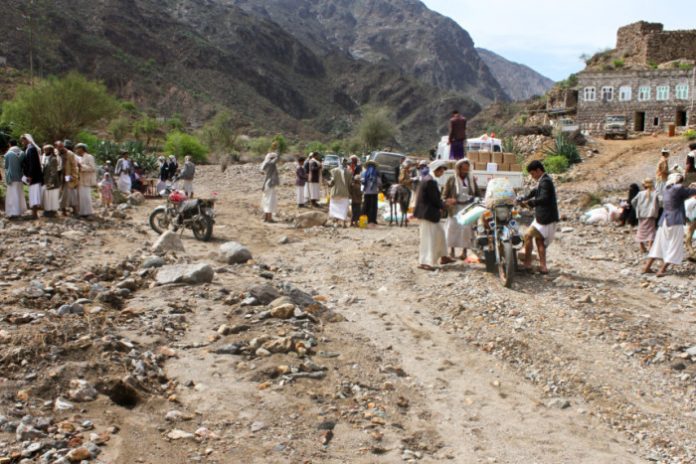Michael McKean
Yemen, an Arab country of 26 million people, is a far cry from the country portrayed in the fantastical Salmon Fishing in the Yemen and for more than two years has been gripped by a devastating civil war.
Innocent civilians are bearing the brunt of the war. Families have been displaced and torn apart, schools closed; children are prisoners in their homes. Cholera is rife with a new child infected every 35 seconds. Increasingly, Yemen has become isolated with food imports drying up and a hunger crisis engulfing the country. UN figures estimate that 17 million people are struggling to find enough to eat.
Within that, seven million Yemenis are on the brink of famine. A population larger than that of Scotland, is reducing food consumption to such levels that people are perishing from hunger. Two million children are acutely malnourished, with a child dying every ten minutes from preventable diseases. Yet the 2017 Humanitarian Response Plan for Yemen remains less than a third funded.
Before the Arab Spring protests that shook the Middle East in 2011, Yemen was already the Arab world’s poorest country. An agricultural economy with little mass production or valuable natural resources, Yemenis lived as they have for decades, subsisting on mountainous and dry lands. But the protests failed to usher in a political transition that was supposed to bring stability. In 2015, the situation collapsed into a civil war between the outgoing president Hadi’s forces and Ansurllah movement.
Edinburgh-based Mercy Corps has been working in Yemen since 2010. Before the war, we focused on helping Yemeni communities build sustainable livelihoods, like supporting sesame farmers to improve production and access markets. But now, more than two years into the war, we’re just trying to keep families alive. We provide vouchers so that people can buy food, water and other emergency supplies, which also helps local traders to stay in business, receive valuable income and continue to provide jobs.
But the needs go far beyond food. A cholera outbreak has affected more than 120,000 people in the past six weeks. Mercy Corps teams are working tirelessly to stem its spread by providing water filters, chlorination tablets and hygiene kits, as well as prevention education, to 350,000 people.
What the McGregor film did do well was portray the natural beauty of Yemen’s landscape and the warmth of the Yemeni people who, right now, are living through a catastrophe. In my 20 years of working in the humanitarian sector, I do not believe we have faced a greater test.





















